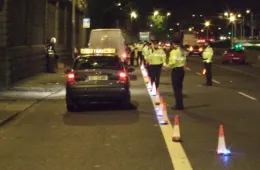A series of controls to enforce drink driving and drug driving regulations across Europe saw police conduct more than 900,000 breath tests in a seven-day period, of which nearly 18,000 were positive. Motorists were also checked for drugs in the operation, organised by the European Traffic Police Network (TISPOL), between 4 and 10 June. In total, 928,863 drivers were controlled. There were 17,970 alcohol offences and 2,773 drug offences detected.
August 22, 2012
Read time: 2 mins
A series of controls to enforce drink driving and drug driving regulations across Europe saw police conduct more than 900,000 breath tests in a seven-day period, of which nearly 18,000 were positive. Motorists were also checked for drugs in the operation, organised by the European Traffic Police Network (4753 TISPOL), between 4 and 10 June. In total, 928,863 drivers were controlled. There were 17,970 alcohol offences and 2,773 drug offences detected.
In addition, during the operation, police officers detected a total of 3,369 other crimes, including 277 drug detections, 47 cases of human trafficking and 27 firearms offences.
“Drug-driving and drink-driving remain significant contributory factors in road deaths,” said TISPOL president Pasi Kemppainen. “We have made progress in helping make more and more road users aware of the dangers of driving after taking drugs or alcohol, or both.
Meanwhile, TISPOL’s pan-European speed enforcement operation continues throughout this week. The operation, which involves both static speed detection and roadside officer intervention, forms a key part of the organisation’s strategy designed to reduce the number of people killed and seriously injured on Europe’s roads.
In addition, during the operation, police officers detected a total of 3,369 other crimes, including 277 drug detections, 47 cases of human trafficking and 27 firearms offences.
“Drug-driving and drink-driving remain significant contributory factors in road deaths,” said TISPOL president Pasi Kemppainen. “We have made progress in helping make more and more road users aware of the dangers of driving after taking drugs or alcohol, or both.
Meanwhile, TISPOL’s pan-European speed enforcement operation continues throughout this week. The operation, which involves both static speed detection and roadside officer intervention, forms a key part of the organisation’s strategy designed to reduce the number of people killed and seriously injured on Europe’s roads.







